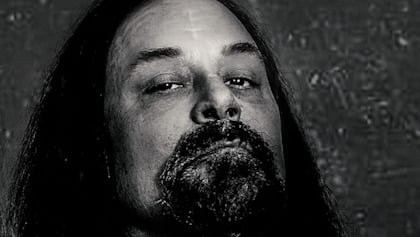
This post was originally published on this site
In a new interview with the “Appetite For Distortion” podcast, vocalist Greg Graffin of punk rock veterans BAD RELIGION was asked to explain the band’s enduring popularity. He said (hear audio below): “It’s hard to say, man. I think the music historians need to dig into it a little bit, and the music critics need to pay attention a little bit, because, as a singer-songwriter, whatever, connection with the audience, I tend to be very biased. I try to get out of that bias. My easy answer is because it’s kick-ass music, of course. [Laughs] But that’s not the answer. The answer has to have something to do with there’s optimism in there. Even though we spent our lives questioning things, questioning the currently held view, there’s optimism. People recognize that. They realize we’re asking tough questions, ’cause we want a better world. And I think there’s an element of that in all BAD RELIGION music, even though there’s a lot of, sort of, harsh criticism.”
On August 18, BAD RELIGION released its autobiography, “Do What You Want: The Story Of Bad Religion”, written with the group’s full cooperation and support. It reveals the ups and downs of the band’s 40-year career, from their beginnings as teenagers experimenting in a San Fernando Valley garage dubbed “The Hell Hole” to headlining major music festivals around the world. The book predominantly features the four principal voices of BAD RELIGION in a hybrid oral history/narrative format: Graffin, Brett Gurewitz, Jay Bentley and Brian Baker. It also includes rare photos and never-before-seen material from their archives.
Last month, BAD RELIGION released a radically reimagined version of its 1990 humanist anthem “Faith Alone”. The re-recording uses an uncharacteristic orchestral arrangement to further accentuate the song’s remarkably relevant lyrics. It is a philosophy BAD RELIGION has extolled since its very formation and has inspired songs like “The Answer”, “Atheist Peace” and “American Jesus” that rail against religious hypocrisy and anti-intellectualism.






